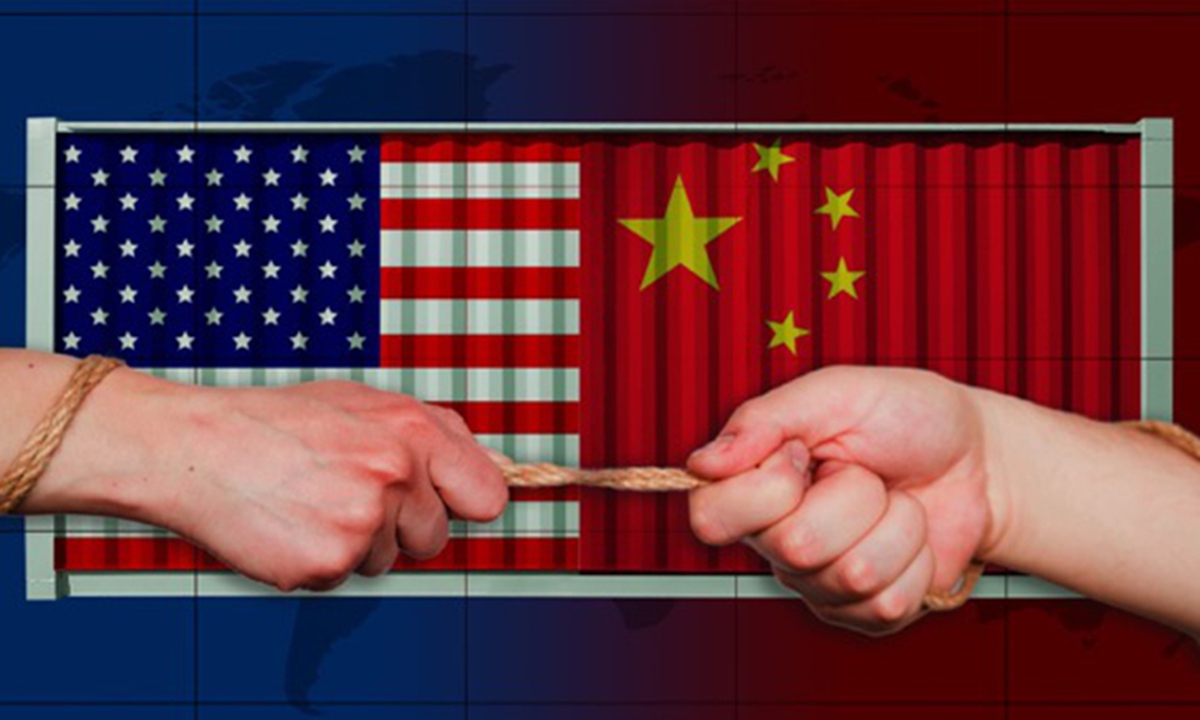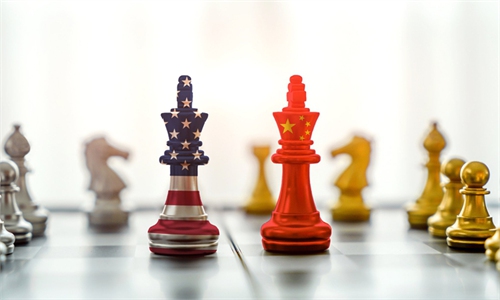
China US Photo:GT
Chinese President Xi Jinping and US President Joe Biden spoke on the phone Friday morning. The press statements from both sides have different emphasis. China pointed out that the US' policies toward China have resulted in serious difficulties in bilateral relations and getting the relationship right is not an option, but something China and the US must do.On the other hand, the US expressed the hope that the "competition" between the two countries does not veer into "conflict." Earlier, the US also complained that lower-level Chinese officials have been unwilling to hold substantive conversations during meetings with members of his administration.
The phone conversation between Chinese and US leaders was initiated by the US as relations spiral downward. Both sides agreed that the talks were frank and open. The US has been the destroyer of bilateral relations. It defines its actions that seriously harm China's national interests as so-called competition. But recently it has seen countermeasures and the resolve of China and is worried that such competition would evolve into a conflict.
The US wants China to meekly submit to US oppression when the US wantonly tramples on China's core interests and defines such interactivity as "rules." China, of course, will not accept the US' hegemonic logic. China's various countermeasures are out of the country's dignity and powerful national strength.
The US sanctioned Chinese officials over Xinjiang and Hong Kong affairs, which will certainly meet with a response from China. US warships and fighter jets make provocations close to Chinese islands and coastlines; how could the Chinese military be indifferent? The US consumed almost all the mutual trust between the two sides. Now, most institutions of the two countries in all areas are engaged in competition. Hostility from public opinion is growing. All these make an accidental military conflict more likely. China-US relations are embedded in various crises.
China is doing in a much more down-to-earth manner than the US, because China stands with its core national interests and morality. We don't want to walk into a conflict with the US. But if a conflict breaks out due to US suppression and provocation, we will face it squarely. Conflicts are unlikely to take place in the Caribbean Sea or the Gulf of Mexico, or in the west coast of the US. The US made it repeatedly at China's doorstep. China has no way back, which makes it fearless.
The US has a guilty conscience, because it is clear that it is the provocative side and knows that its actions are bound to meet with China's resistance. It is worried that a sudden conflict breaks out due to misjudgement as the two sides compete for wills. It has to be said that the Chinese military has nothing to talk about with the US counterpart as the US keeps sending warships within 12 nautical miles of Chinese islands and its fighter jets repeatedly provoke at China's coastlines. It is impossible that the US threatens China's security but does not bear the risks. The US wants to show off and pull a stunt with 100-percent security, but this is never the way major powers deal with each other.
In the phone conversation, both leaders expressed the hope to strengthen communication at various levels. This can be seen as the will of both sides to maintain peace. Given the complexity of the US system, we hope the spirit conveyed through the conversation can be well practiced and implemented in all areas of the US, and that the scenario where the US leadership talks good but relevant departments do otherwise shouldn't happen. What is important is that the US should adjust its fundamental thinking of strategically containing China and truly shoulder its responsibility for world peace. It is time the US stops playing rhetoric and harming China's interests in actions and destroying the foundation of world peace.
It is hoped that the phone call can bring some real changes to bilateral ties. Cooperation between the two sides can be carried out in a truly mutually beneficial manner as relations improve. As long as the two sides stick to the spirit of the call and work toward this direction, progress can be expected. It is the hope of both Chinese and American people as well as the international community which cherishes peace and cares about development.

